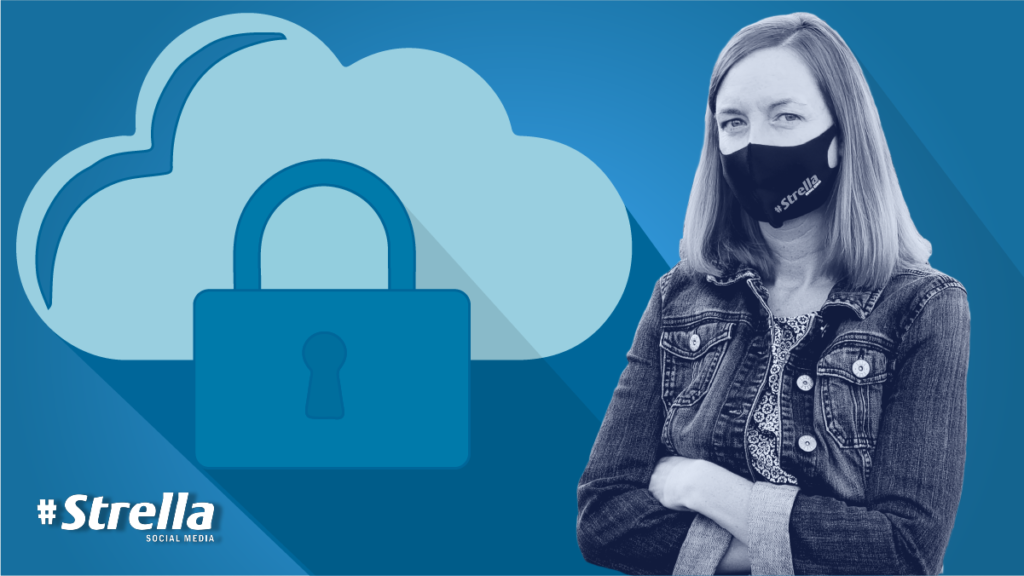I don’t often talk about trends. I believe in taking a wait-and-see approach before jumping onto any bandwagon. However, with so much hype about what the future holds, I think it’s important to address a few hot topics.
- Metaverse
- Non-Fungible Tokens (NFTs)
- Blockchain
- Web3
- Artificial Intelligence (AI)
- Augmented Reality (AR)
- Virtual Reality (VR)
The above innovations are a sampling of the trends we see in headlines today. These buzzwords represent “what’s next,” and we should all know something about them.
Below, I’ve shared a little bit of what I’ve learned. Also, I’ve described a real-world example of how a cybersecurity threat directly impacted a #Strella team member and my thoughts on what we need to focus on to navigate the tech evolution.
The Buzz on Buzzwords
1. Metaverse
A recent article in National Law Review offers some guidance to help us understand these tech topics, particularly the metaverse. In short, the metaverse is the convergence of the virtual and physical worlds. What that means is still somewhat unclear, but it sure does sound exciting — and rather terrifying!
2. Non-Fungible Tokens, Blockchain, and Web3
NFTs have received a lot of hype, primarily because of the underlying infrastructure at their foundation – blockchain and Web3. Mark Schaefer explains this and several other trends in his post, “Peering into the future at SXSW.”
It is predicted that millennials and Generation Z will make up most of the global workforce by 2025. These generations are leading the charge for decentralization and will continue to propel trends like NFTs and blockchain technology. This could disrupt the economy in a big way.
3. Artificial Intelligence
I have been reading everything I can about AI to understand it better. I’m also taking a course, AI, Business & the Future of Work, to immerse myself in what’s being called the “Fourth Industrial Revolution.” There is a lot of misunderstanding about what AI is and how it works.
Many fear they will lose their jobs to machines, and others worry it will be a battle between machines and people. Historians trace every major revolution since the 1700s. They use that data to predict when change is on the horizon and when it will lead to mass implementation. They’ve discovered we are probably about a decade away from large-scale implementation of AI.
4. Virtual Reality and Augmented Reality
AR and VR both offer interactive experiences through technology.
In VR, users enter a completely computer-generated environment. They enter the VR setting via headsets that give them the impression of being somewhere else.
In AR, a real-world environment is enhanced by computer-generated elements, such as sensory perceptions (e.g., sounds, scents, imagery, etc.). AR augments the existing environment, with users controlling aspects of their presence using an AR device, such as a pair of smart glasses or an app on their smartphone.
Aside from the gaming and entertainment aspects of these technologies, I expect more and more companies to explore how they can advance their brands with AR and VR. For example, to entice prospective customers to book a trip, a travel agency might give them a “virtual” taste of what they’ll experience when staying at a luxury resort on the island of St. Barts.
What Should We Focus on Right Now? Protect Ourselves!
I favor learning about and employing new technology, but not at the expense of privacy and security. We live and work in a world where cybercrime is running rampant.
Recently, a #Strella contractor who operates a social media management business discovered her Facebook account was hacked. The hacker posted child pornography to the contractor’s personal profile. The crook also took control of her Facebook business pages, removed her from her own page, and stole almost $20,000 from three different ad accounts.
As a result, the contractor lost her entire account — and four clients. She had all the security measures in place to prevent this occurrence, but it still happened.
Sadly, Facebook has been unhelpful. The contractor spent three weeks issuing ticket requests, re-tracing the events, and following up with Facebook, yet they have provided her no explanation of how the hacker broke through her two-factor authentication.
This goes to show that getting hacked can happen to anyone.
If you don’t yet have basic protections in place — anti-virus software, secure passwords, and 2-factor authentication — now is the time to get them.
I also encourage you to review your cyber insurance policy, update your passwords, and ensure you’re using a private Wi-Fi connection to access the internet.
This article offers some good measures for preventing a Facebook hack, and several of them can help prevent other types of security breaches. Cybersecurity is an issue with the invasion of Ukraine, as well. Consider the tips by Modern Board for protecting your business as U.S.-Russia relations deteriorate.
As connectivity evolves, so does our need for protection. Review your accounts and devices for vulnerabilities and take action to make them more secure.
Your turn! What opportunities and risks do you foresee with the technologies I’ve mentioned in this post?
